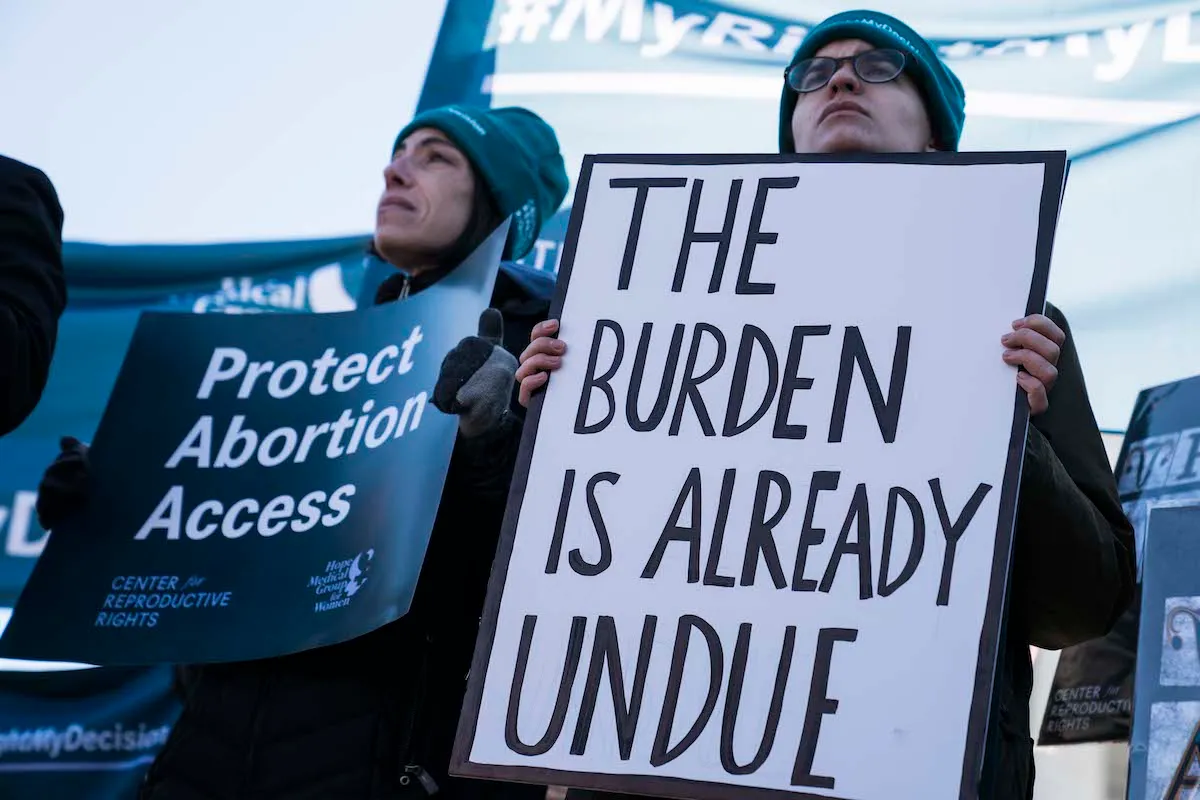In a much-needed win for reproductive rights, a federal court has ruled that people can now receive the abortion pill in the mail. The judgment suspends an FDA rule requiring patients to meet with a doctor in a hospital, office or clinic in order to get mifepristone during the coronavirus pandemic.
More great news. Let’s be clear: Medically unnecessary barriers on mifepristone most harm those who already face tremendous obstacles to accessing safe, legal abortion. This ruling is an important step to advance health equity as we continue to weather the COVID-19 pandemic. https://t.co/cm2GR1vVrD
— Alexis McGill Johnson (@alexismcgill) July 13, 2020
U.S. District Judge Theodore Chuang wrote, “The In-Person Requirements, combined with the COVID19 pandemic, place a substantial obstacle in the path of women seeking a medication abortion and that may delay or preclude a medication abortion and thus may necessitate a more invasive procedure, … Particularly in light of the limited timeframe during which a medication abortion or any abortion must occur, such infringement on the right to an abortion would constitute irreparable harm.”
Roughly 40 percent of all abortions are medication abortions, which involve taking mifepristone (also known as RU-486) along with a second drug, misoprostol. Patients had to pick these drugs up in person, with some traveling hundreds of miles to find a doctor or clinic that would prescribe them. It’s a rule that made it even harder for low-income patients and people in underserved communities to obtain the pill.
Skye Perryman, chief legal officer for the American College of Obstetricians and Gynecologists, said the FDA’s restrictions on mifepristone are not medically necessary and “do not advance the health and safety of patients.” They added, “Today’s ruling recognizes the hardship and undue burden that many women have faced obtaining essential health care during the COVID-19 pandemic.”
The Trump administration, along with many local governors, have tried to use the pandemic to sneak in more anti-abortion legislation. Ohio lawmakers tried to leverage the PPE shortage to stop doctors from performing abortions, citing them as “nonessential operations.”
Ohio is joined by Texas, Oklahoma, Louisiana, Tennessee, Alabama, Iowa, and Arkansas, which are all trying to force through anti-choice rules under the guise of COVID-19. It’s become a big enough issue that members of the UN Working Group on Discrimination against Women and Girls were forced to make a statement.
Elizabeth Broderick, Vice-Chair of the Working Group, said “We also express serious concern that, by denying access to time-sensitive abortion care, officials are placing women at risk, exacerbating systemic inequalities,” adding that “For many women in the US, bans on abortion during this pandemic will delay abortion care beyond the legal time limit or render abortion services completely inaccessible.”
UN experts are concerned some US states – such as Texas, Oklahoma, Alabama, Iowa, Ohio, Arkansas, Louisiana and Tennessee – appear to be manipulating #COVID19 crisis measures to restrict access to essential #abortion care 👉 https://t.co/KQ0e62XpoI pic.twitter.com/Ue6ArJbVSL
— UN Special Procedures (@UN_SPExperts) May 27, 2020
She followed up by saying, “We reiterate that sexual and reproductive health services, including access to safe and legal abortion, are essential and must remain a key component of the UN’s priorities in its responses to the COVID-19 pandemic.”
(via HuffPost, image: Sarah Silbiger/Getty Images)
Want more stories like this? Become a subscriber and support the site!
—The Mary Sue has a strict comment policy that forbids, but is not limited to, personal insults toward anyone, hate speech, and trolling.—










Published: Jul 14, 2020 05:48 pm